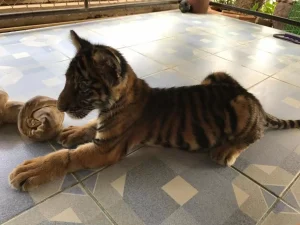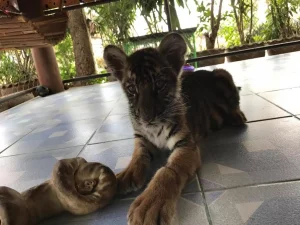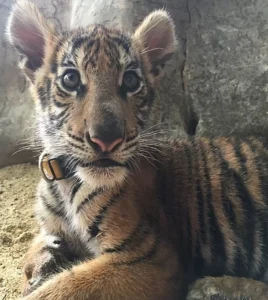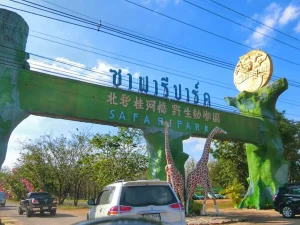Pika was never allowed to grow up to be a typical tiger cub.
Pika was removed from his mother at the Safari Park Open Zoo and Camp in Kanchanaburi, Thailand, when he was just 6 weeks old so that visitors may bottle-feed him and snap selfies.
Then, at the age of roughly two and a half months, Pika was sent to the clinic to be declawed, a risky process in which huge cats have their toes essentially amputated at the first knuckle.
According to Michael, a volunteer who had previously worked at the Thailand zoo and assisted in raising Pika, after the declawing procedure, Pika was never the same.

“He was declawed and came back with low energy,” Michael, a spokesperson for the Facebook group Big Cats Claw Back, told The Dodo. “He would not walk, play, bite or anything. He just lay in a corner. The only time he would move is if he didn’t like being handled.”
Pika stopped eating and drinking, and needed saline injections to stay alive. But Michael, who asked that his name be changed out of fear of retribution by the zoo, said that inexperienced volunteers were the ones who gave Pika his injections.

He said that the cost of having them inject saline daily for months prevented sending him to the veterinarian.
The cub was given an injection by untrained volunteers who weren’t told they would have to perform it, and because the vein was tricky to find and the wrong section was punctured, the tiger frequently screamed in pain and bled out into the ground.
Pika unexpectedly improved despite the fact that his paws would never fully recover. He was returned to the zoo’s cub exhibit where visitors may interact with him or leash-walk him.

Everything about the cub section seemed suspicious, starting with where the cubs themselves came from. They would appear at a few months old, and the Chinese-Thai owners would give no explanation to the staff, according to Michael.
“There’s a huge mystery behind it,” Michael said. “We never get told who the parents are — which lion or leopard is the mother or father.”

Sadly, conditions like this are far from unusual in Thailand, whose tourism industry is noted for its exploitation of animals — big cats in particular. Kanchanaburi, where the safari park is located, was also home to the infamous Tiger Temple, an animal park that once housed over 100 tigers, and similarly offered tourists the opportunity to pose with tigers and take selfies with them.
But in 2016, after years of rumors, officials discovered that the Tiger Temple was actually a tiger slaughterhouse — its freezers contained the bodies of dozens of dead cubs — and the facility closed down. However, the facility is set to reopen and import more tigers for its attractions, according to a news report.
0 Comments